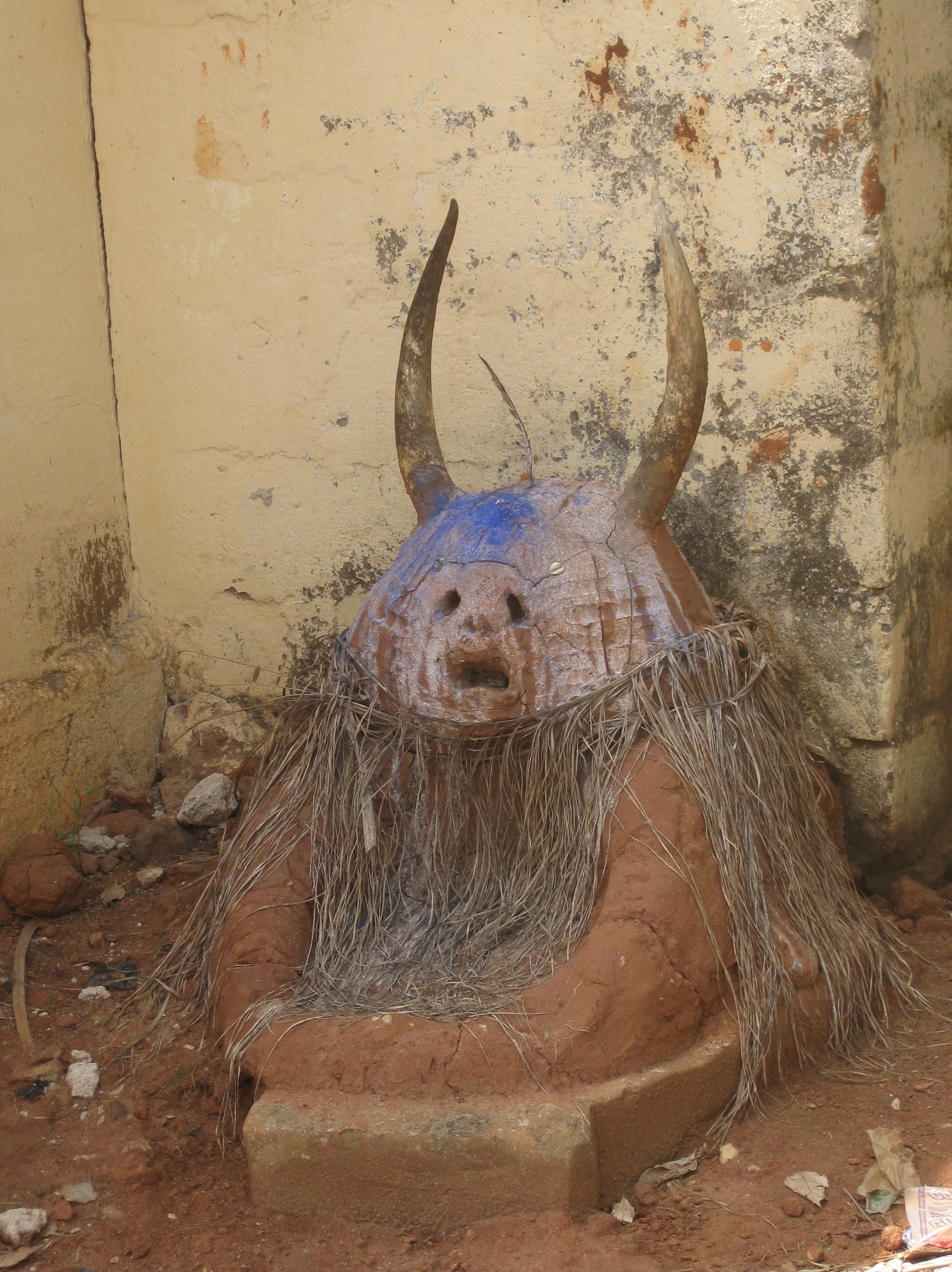Fulbright College Launches Inaugural Course on African Art History
The Fulbright College of Arts and Sciences would like to announce its inaugural course on African art history: ARHS 4993 Secrecy and Power in African and African Diasporic Art.
The course will be taught this fall by Timothy Landry, visiting assistant professor in the religious studies program in Fulbright College. Landry's hire was made possible by generous contributions from the African and African American studies program, the department of anthropology, the department of art, the department of communication, and the department of history.
Chair of the department of Art Jeannie Hulen described Secrecy and Power in African and African Diasporic Art as "affording students the opportunity to engage in an in-depth, fully contextualized investigation of art objects through an examination of the societies from which these materials emanate. Most importantly, students’ attention will be drawn to the sources of power from which material objects operate."
The head of the art history division in the department of art, professor Lynn Jacobs, added, "Currently African art is one of the most exciting areas of research in art history, so I am thrilled that, for the first time, U of A students will have an opportunity to learn from an expert in this field."
Landry's inaugural course, Secrecy and Power, will focus on the ways in which the peoples of the African Atlantic world express, explore and negotiate their religious identities, beliefs, social capital, agency, legitimacy and power through visual culture.
Students will explore images, fashion, shrines, charms, sacred space, divine power, magic, bodies and consumption in order to develop a working knowledge of “art" in the religions of the African Atlantic world. The course moves from the so-called African “fetish” to intricately carved wooden statues from Nigeria; from sequined and beaded death masquerades in Bénin to sacred and powerful stones in Brazil, Cuba, and the United States; from powerful mojo bags, roots, and powders in the American south to Islamic-themed adornments in Sierra Leonean taxis in Washington, D.C.; and from powerful charms and spirit shrines in Brooklyn to ritual art in West Africa and the Afro-Caribbean.
Across these various settings, students will chronicle the ways in which religious experiences, including beliefs, anxieties, rituals, ceremonies, and cosmologies, are articulated, maintained, and even protected through material culture and the visual arts across the African Atlantic world.
In his teaching and research Landry has aptly addressed the question: "Why Africa?" For decades U.S. and European media, popular culture, and even scholarship has centered on Africa as a continent that is riddled in war, overcome by poverty, defined by catastrophe, and stuck in the “traditional past” unable to achieve “modernity.” In studying Africa today, students will examine the racial, political, and economic dangers of what Nigerian novelist Chimamanda Ngozi Adichie has called the “danger of the single story.” Students will move beyond Africa’s “single story” of disaster and destitution by developing a nuanced and multi-layered understanding of Africa. This approach will require them to attend to those global inequities that are encouraged by ongoing global (mis)representations of Africa while also giving them the tools necessary to move beyond Africa’s stereotypes. Through active coursework on these issues and more, students will develop an understanding of Africa that appreciates the continent’s endless riches, unbelievable diversity, and growing importance in an ever-globalizing world.
Landry received his doctoral degree in anthropology in 2013 from the University of Illinois at Urbana-Champaign. He is one of the few anthropologists who has conducted long-term ethnographic research in both Benin and Haiti to understand the depth by which Africa and the African Americas remain connected. In his current research, he explores the ways in which the globalization of Vodún (Bénin) is encouraged by the formation of transnational religious-based markets, global media, and international spiritual tourism. He takes special interest in how religious secrecy and material visual culture is performed, commodified, and mobilized by both Béninois Vodún practitioners and foreign spiritual seekers who seek to authenticate and legitimize the transnational migration of West African religious practices and ideologies as new diasporas are formed in the U.S. and Europe.
For information on the religious studies program in the Fulbright College of Arts and Sciences, visit rlst.uark.edu.
Contacts
Lynda Coon, Director, Religious Studies Program
Religious Studies
575-5896,
llcoon@uark.edu
Headlines
U of A's Inspirational Chorale Makes Its Carnegie Hall Debut
The U of A's Inspirational Chorale took center stage at Carnegie Hall in March, performing under the direction of professor Jeffrey Murdock to a packed audience at the iconic Stern Auditorium.
The State of Economics With Mervin Jebaraj Set for June 5
U of A economist Mervin Jebaraj will analyze state's economic trends and regional issues in an upcoming talk. Preregistration is required by May 31.
Faculty Demonstrate Dedication to Student Success Through Teaching Credentials
Eight faculty members from across the U of A have earned the prestigious Association of College and University Educators certification in Effective College Teaching.
Artificial Intelligence, Machine Learning Boost Arkansas Animal Science Research
Aranyak Goswami, a bioinformatics specialist, will work with three different departments to boost the research arm of the U of A System Division of Agriculture.
College of Education and Health Professions Doctoral Student Picked for Grosvenor Fellowship
Jessica Culver, a doctoral student in the College of Education and Health Professions Adult and Lifelong Learning program, has been selected as a member of the 2024 Grosvenor Teacher Fellowship.





